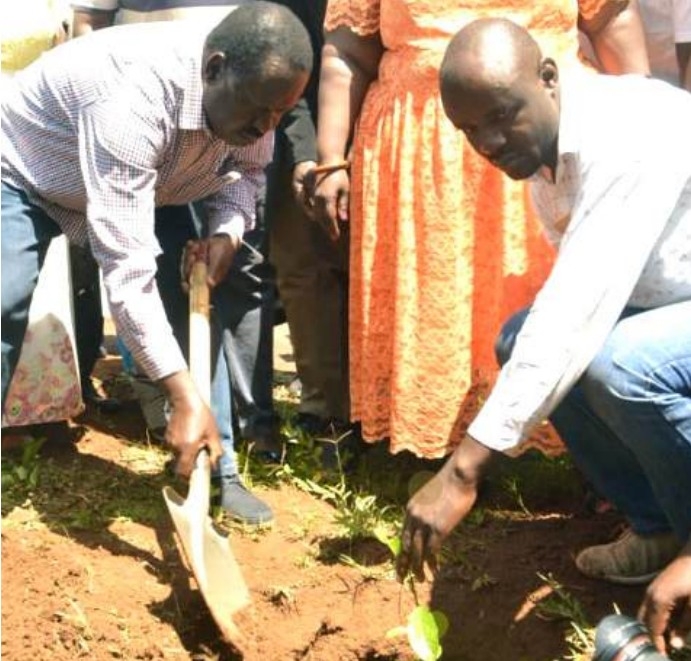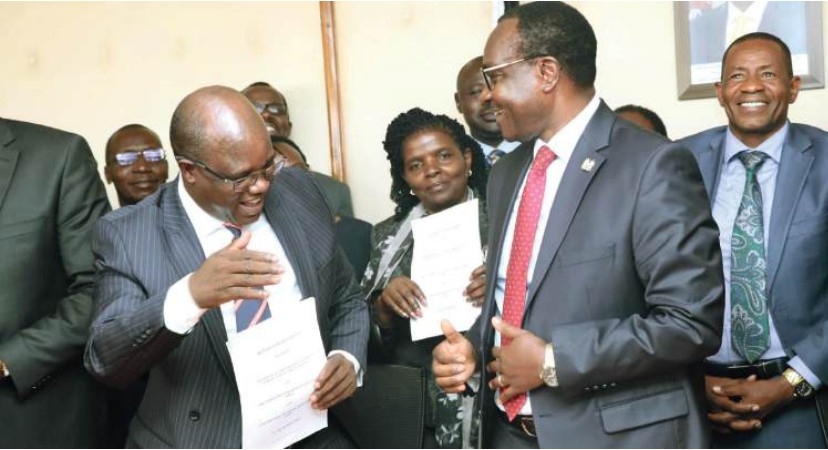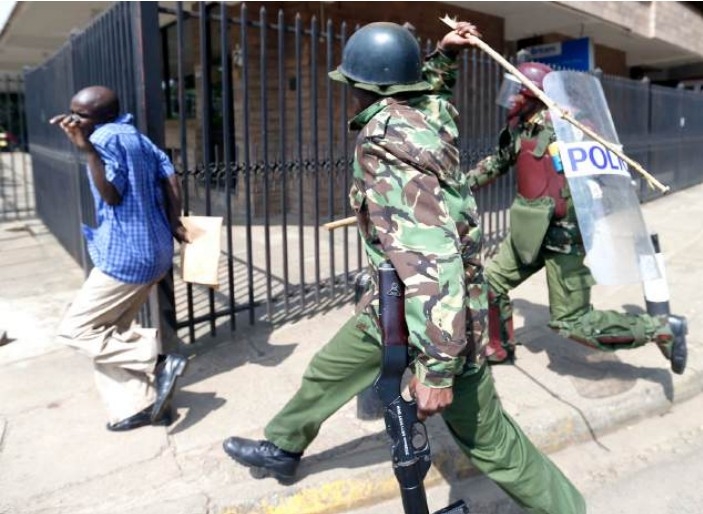Prosecution is a fundamental component of the criminal justice system. In Kenya, this role is entrusted to the Office of the Director of Public Prosecutions (ODPP), as outlined in Article 157 of the Constitution and reaffirmed in the case of Thuita Mwangi & 2 others V Ethics & Anti-Corruption Commission & 3 others (2013) eKLR.
Conversely, Article 79 mandates Parliament to enact legislation establishing an independent Ethics and Anti-Corruption Commission (EACC), which will possess the status and powers of a commission under Chapter 15, ensuring compliance with and enforcement of its provisions.
It is worth noting that the framers of the Constitution dedicated an entire Article to the establishment of ODPP. Article 156 details the appointment, powers, term of office, state powers of prosecution, the processes for instituting and discontinuing prosecutions, the effects of discontinuation, and the independence of the Director of Public Prosecutions (DPP).
In contrast, regarding the EACC, the Constitution merely states that Parliament shall enact legislation to establish an independent EACC, without explicitly prescribing its role. Consequently, the EACC should not be elevated beyond the level intended by the framers of the Constitution.
The ODPP serves as a prosecutorial service in Kenya and does not conduct investigations. Instead, the ODPP receives investigative files from various agencies authorised to conduct investigations. A fundamental principle of justice is that “no one should be a judge in their own cause” and therefore the roles of investigator and prosecutor must remain separate. This principle ensures impartiality and fairness in the criminal justice process by preventing conflicts of interest.
The decision to prosecute is a critical and serious step within the criminal justice system. It is a responsibility that cannot be entrusted to investigators since they are involved in the investigative process. Instead, this decision rests with the Prosecutor, who must independently assess the evidence and determine whether to proceed with prosecution.
This separation of powers upholds the integrity of the legal process and ensures that prosecutions are pursued based on objective criteria rather than personal interests.
Section 11 of the Ethics and Anti-Corruption Commission provides for the functions of the Commission that include under section 11(1)(d);
“investigate and recommend to the Director of Public Prosecutions the prosecution …”
The functions of the EACC are clearly defined in the relevant legislation, none of which assigns it a prosecutorial function, let alone the role of a secondary prosecutor. It is essential that EACC is reminded to adhere strictly to its designated responsibilities and refrain from encroaching upon prosecutorial duties.
In the decision of the High Court, Constitutional Petition No E266 of 2020, Okiya Omtatah Okoiti v Director of Public Prosecutions and others the Honourable Judge stated as follows;
“193. It is thus clear that an investigator tries to establish the truth about an alleged crime and to discover the perpetrator. The prosecutor on the other hand institutes criminal proceedings against a person identified through investigations as the perpetrator of an offence known in law. … The prosecutor is the one who determines the charge, drafts the charge or information and decides on the witnesses to be called.
- In the criminal justice system, the investigator is the collector of evidence and the prosecutor is the one granted power to determine whether the evidence is sufficient to mount a prosecution…”
Further, Article 157(6)(c) of the Constitution, Section 25 of the ODPP Act and Section 87(a) of the Criminal Procedure Code (CPC) provide for the application for discontinuation of cases.
The above Constitutional and legal provision must be exercised in accordance with Article 157(11) especially the need to prevent and avoid abuse of the legal process.
A Prosecutor is also required to constantly review the evidence on record in order to ensure quality prosecution.
Section 5 of the ODPP Act provides for the powers and functions of the Director. Specifically, section 5(4)(e) provides for the power to review a decision to prosecute or not to prosecute any criminal offence.
The Guidelines on the Decision to Charge, 2019 under provides Para 4.6 under what conditions a decision to charge can be reviewed and the need to ensure the continuous review of ongoing prosecutions for purposes of quality control.
In Republic v Simon Okoth (2017) eKLR Prosecution sought to have the matter withdrawn under Article 157(6)(c) of the Constitution and section 87(a) of the CPC after a review of the evidence. The Complainant objected to the withdrawal of the matter. The Trial Magistrate declined to allow the withdrawal thus leading the prosecution to seek a revision of the matter at the High Court, an application which was allowed and the matter was withdrawn. Hon. Justice Prof. Joel Ngugi (as he then was) held that;
“14. … in determining whether to permit the DPP to discontinue charges, the Court will test the decision against public interest; interests in the administration of justice and the need to avoid abuse of the legal process.
- This tripartite test stipulated in Article 157(11) must be viewed together with the other principles laid out in Article 157. …
In the exercise of his powers and functions, the DPP is under no direction or control of any person or authority. These provisions are not cosmetic.
In conclusion, the ODPP adheres to its Constitutional mandate within established parameters to ensure that only thoroughly prepared and high-quality prosecutorial files are presented before the court. During this period of constrained resources, it is imperative that the ODPP not only maintains the principles of fairness and justice but also ensures that all activities and duties deliver maximum value for money for the Kenyan taxpayer.
DISCLAIMER: The writer is the senior principal prosecution counsel, Office of the Director of Public Prosecutions (ODPP). The views and opinions expressed in this article are his own, not those of his employer














![[PHOTOS] How ODM@20 dinner went down](/_next/image?url=https%3A%2F%2Fcdn.radioafrica.digital%2Fimage%2F2025%2F11%2F99d04439-7d94-4ec5-8e18-899441a55b21.jpg&w=3840&q=100)
